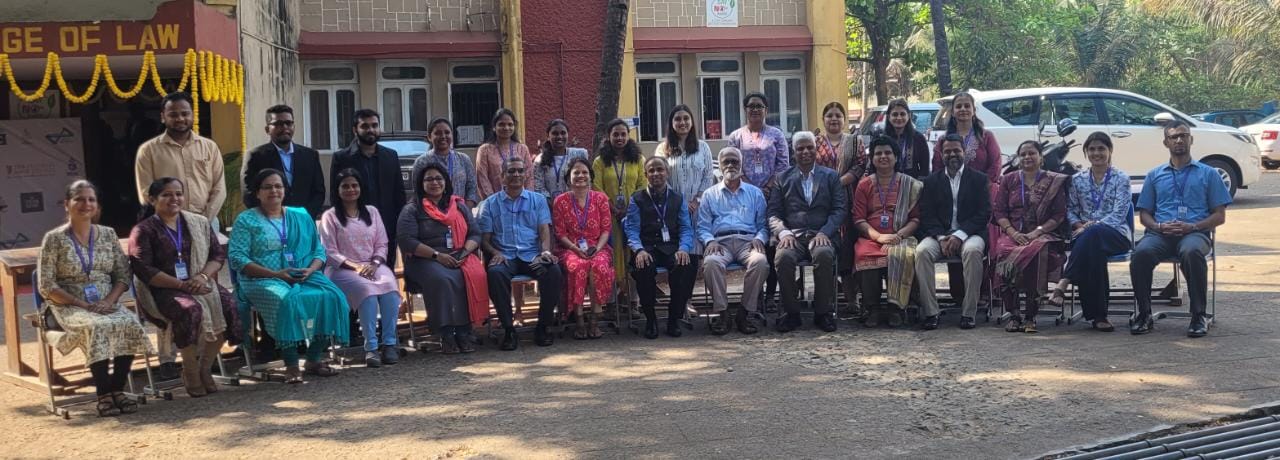Introducing a Subject
EditorialIntroducing a Subject
Dr. Babugouda S. Patil•
![]()
Introducing a subject has rarely been the topic of discussion. It has been treated as an insignificant aspect of the lectures which are delivered for the whole semester. However, I differ in my opinion, as I feel that introducing a subject is all together a different challenge. It is the stage, which make students realize the importance of the subject. The students, who have understood the importance of the subject, are motivated to learn and understand the subject in a better way. Therefore, introduction should be a method of motivating the students. Presence or absence of motivation creates the category of good and bad students.
Every student possesses two desires, ‘desire to know’ and ‘desire to learn’. A student with desire to merely know, will turn out to be a bad student. However, a good introduction generates in the students, the desire to learn. So what is a good introduction? The author, in his article discusses the importance of introduction of the subject on order to create the ‘desire to learn’ and suggests few methods to achieve it.
My Perception
![]()
I find myself comfortably seated on the teachers post, delivering information to the recipients. But the recent developments have exposed me to an opportunity to discuss teaching methods with teachers of the various other institutions. This has opened up a new grey area; ‘Introduction of the subject’. To my surprise, for many teachers (including me) the role of teacher at the beginning of semester does not differ much from the end. Most of the teachers usually have the same monotonous approach.
In the beginning of the semester, the students are back from holiday. It’s time for them to relax and chat with friends, to exchange their experiences. Similarly, teachers are back to routine life, from the much needed break. The brain needs to be dusted of the rust that has gathered around. At such a time, the teacher enters and gives an introduction to the subject, when the reception level is at the poorest and the deliverance is with the lowest preparation.
Under these circumstances at the lowest reception level, the approach of most of the teachers would be to spend the class hour without imparting much information. Therefore, as a consequence the initial lectures are not of much benefit. Lack of information and interaction in the initial days is mainly because of two things; one, lethargic teacher and secondly, rusted students. As the semester progresses, the professionalism is back in place, the learning process peaks.
At this stage, it is worth to stop and look back; the precious time that has been lost may cost dearly. Even though the teacher may not be at loss, students definitely feel the pinch of the mistake. The simple reason being; in the beginning the teacher has ‘technically’ introduced the subject. By the time the students are back into their groove, the teacher is dealing with further chapters in the subject.
Therefore, it is the duty of the teacher to get back to the law school well before the start of the teaching activity. It is not enough to be back, they need to spend time on the subject and its preparation.
When students are at the lowest level of alertness, it is the duty of the teacher make the class lively and make sure that the information reaches the recipients irrespective of the stage of alertness.
Introductory Lecture : Is it really different from a regular class?
![]()
In law, every semester throws a new challenge in the form of a new subject. Unlike in science, e.g. Zoology is taught in every semester may be in parts. But the subject as a whole remains the same. However, teaching of Law throws open a new challenge. Every subject is a new subject with different jurisprudence behind it. Therefore in Law, introducing a subject becomes an important tool.
Being a teacher for last 12 years, I never gave a serious thought to it. That made me novice in the teaching line. I find myself an amateur, when the whole concentration is on giving information, without realizing the students’ needs and capacity to understand.
This sudden realization and brief exposure to other teachers made me to do a quick field research, on approaches of different teachers on introductory lecture. The study revealed that every teacher has his own understanding and approach. I also realized that teachers like me are in majority and they do not attempt to put any special effort to make introductory lecturea special lecture.
Second important revelation was that, it is very difficult for a new teacher to give an effective introductory lecture. The new teacher or a teacher with new subject would prefer to avoid calling first lecture as introductory lecture; instead it will be part of the regular lectures.
Enumeration of different approaches
![]()
After realizing the importance of the lecture, I attempted to learn from others. This made me interact with teachers from my college as well as from other colleges. This informal research has revealed a few standard method adopted by many teachers.
• An overview of the subject
![]()
This is the most common method adopted to introduce a subject. The teacher will take up the overview of the subject and introduce the complete syllabus to be covered during the semester. Most of the teachers with exception of a few, adopt crude method of overview. Many deal only with the content and a few go beyond it and discuss the teaching plan with modules and the time required for each module.
In either of the method, I find it to be introduction of the syllabus rather than the subject. Be it systematic or a crude approach, the object of such lecture would be exclusively to provide teaching plan for the whole semester rather than introducing the subject. This method is advantageous in other courses where each year, students study the same subject but at an advanced level. However, the discipline of Law poses a different challenge. Every time a completely new subject is to be studied, this will not be repeated again. The student therefore is under the pressure of now or never (unless they take it for self-study). At the same time the teacher is under pressure to make the class lively and to involve students in the teaching and learning exercise. Under these circumstances, it is very relevant to spend time to develop a module to introduce the subject.
• Ice breaking session
![]()
Another common method adopted universally is the ice breaking session. The teacher instead of dealing with the subject prefers to spend time in developing human relations. The teacher introduces himself/herself with a brief bio-data and insists upon introduction from each and every student. This gives the teachera brief idea about the student community with whom he/she will be dealing with for the whole semester. The piece of information is valuable as it will provide an understanding of the receptive community and their background. This will help to choose an appropriate approach to the teaching.
Many a times, students are drawn from different social and economic backgrounds. These backgrounds have telling effect upon their command over the English language. This information helps the teacher to decide upon the need for special effort to adopt simpler language of teaching. For example, the teacher who was teaching me CPC (Civil Procedure Code), used vernacular language to give live examples, as it would help him to dramatize it. But almost at the end of the semester, he came to know that some students were from different part of India with different vernacular language background. This situation could have been avoided with ice breaking sessions.
In spite of the advantages of ice breaking session, it has failed to impress me as I see it as an attempt to make ground for the teacher, rather than empowering the students. In this method the teacher gains advantage over students with advanced information. However, from students’ point of view the exercise does not provide any worthwhile information. Further, this method has a distinctive advantage with seminars and workshops. As the time available is limited, this ice breaking session creates a short cut to know each other.
Ice breaking method cannot therefore be discarded due to its specific advantages. However, fully depending on to it will not yield desired results.
• No Introduction
![]()
As mentioned above, many new teachers or even experienced teachers with a new subject prefer to skip introductory lecture. Instead, many of them prefer to start with the syllabus and move on slowly and spend more time in explaining basic concepts. Once both, the teacher and the students get used to the jurisprudence of the subject, then the explanation could be kept at the minimum and syllabus can be continued at the faster pace.
What makes the difference?
![]()
During these years of teaching, I found that learning is a psychological process. A highly motivated and sensitized person has more capacity to learn and understand. As the brain responds positively to the interested area, it is necessary to create interest to become ‘best’. The quest to become the ‘best’ is not an individual, but a group action. The role of a teacher in this quest has to be impeccable. As a knowledge provider, the teacher has a very important role.
A student, who cannot remember the ratio of a case, can repeat a dialogue of a movie verbatim. Does that mean that movie is a better teacher than most of us? If yes, then our search for effective communication is over. Does that mean that all the subjects should be taught in the form of movies? No. It only means that communication becomes effective, if the receptor has an alert mind.
Therefore, there is a need to create an alert mind. One of the methods to make mind alert is motivation. This will assure interest in the subject from the very beginning of the semester. If this part of the year is wasted then the classroom becomes a torture chamber for both the teacher and the student.
‘Desire to Know’ and ‘Desire to Learn’i
![]()
These are the two levels of learning which every person adopts at all time. In case of ‘desire to know’, the mind is with low motivation. I being the teacher in law, nothing stops me from knowing the process of metamorphosis of a butterfly. However, my ‘desire to know’ the process will enable me only to understand the discussion, participate in it and not feel out of place. My position will exactly be like a person who can speak on carpentry but cannot make any object out of the wood.
On the other hand, ‘desire to learn’, is a high fruit yielding process. Adoption of this process leads to a highly motivated mind working towards gathering all the information and processing it into the formation of knowledge. This knowledge makes the person hold the skills to solve all possible problems relating to the subject. If I develop desire to learn the topic of ‘murder’ under the Criminal Law, I would learn it by reading different books as well as case laws. My information on the topic will not be any way less than any lawyer. My position will be of a man who can speak on carpentry as well as make furniture. This is most desirable, Therefore, the focus should be on the population with a desire to know and efforts should be made to make them into better learners. The task of the teacher is to make the students to switch on ‘desire to learn’. This would make the task of imparting information much easier.
The role of a teacher differs depending upon the nature of the students. Approximately 10% of the class strength possesses only ‘desire to learn’. They are highly motivated and they know the purpose of joining the College. The task of the teacher is much less, as such students possesses highly receptive minds. The other 10% form other extreme of the class which only possess a weak switch of the ‘desire to know’. This lot of students doesn’t hold any kind of inclination to learn. They are in a confused state of mind. The role of the teacher is to its minimum even in this case. As the mind is at its lowest receptivity, no motivation works for them. The mind will be in eternal wait for a ‘spark’ to overcome the confusion. The ‘spark’ may be of any kind, as the students background makes them react differently to the same situation.
Then come the remaining 80% of the students, who possess both; ‘desire to know ’as well as ‘desire to learn’ and these students easily join the latter 10% as the competitiveness remains absent. Here the role of the teacher is of paramount importance. If the teacher makes the students switch on the ‘desire to learn’, it makes the class more interactive and the students more receptive. They will not be solely interested in writing down notes, but may want to explore new grey areas, or test the mind, confuse it and look up to the teacher to solve the confusion and thus be a carpenter who not only can speak about but also make impeccable furniture.
From ‘Why’ to ‘How’
![]()
The toughest task of a teacher is not to know what to do, but to know how to do. From the above discussion, the need to treat the introductory lecture differently from the other regular lectures has been well established. The task in hand is how to achieve it? The attempt to explain the same is based on few discussions held among my faculty and the teaching fraternity.
The attempt to switch on ‘desire to learn’ or to bring in ‘motivation’ or ‘sensitization’ involves three stages. All three stages may be dealt in the same introductory lecture or it may be spread over two or three lectures.
This first stage involves the driving of a point home, regarding ‘importance of the subject’. Few students’ get motivated when they feel that the subject is very important for the society. The importance can be conveyed by narrating incidences which may occur in anybody’s life in the absence of law. For eg, the need for Labour Law can be explained by narrating a fictitious negotiation between a rich employer and a poor workman. With this narration the difference in economic as well as social status between negotiating parties can be highlighted. At the end of the negotiation, the scene will be that the workman is exploited to the hilt. With this narration, the teacher has established the need for protection of the workman. Similar stories covering different aspects of the life of the workman can be narrated. This makes the student feel that the subject is much needed and is socially relevant. Learning of the subject would help him bring a difference in the society.
In the second phase of motivation, the teacher could shift his attention to the present situation. Whether the fear expressed in the first phase is successfully countered? If yes, how can the same is achieved? If no, what are the loopholes which lead to failure of the law? This study makes the student think beyond the books and look around and try to find his own reason for work ability or non-workability of the law. This phase also helps the student to analyze the subject from the point of view of the beneficiaries of the law.
In the third phase, the attempt could be made to divert the attention of the student towards the profession. Detailed explanation regarding the role of subject in the legal profession can be explained. The opportunities which the subject opens to a young lawyer can be laid out. This explanation may attract a few more students, switch on their ‘desire to learn’.
As a departing word, I would like to mention that students’ interest in the subject chiefly depends upon the reputation of the teacher. The students may like the subject, if they like the teacher, but if it is taught by the teacher whom they respect, the love for the subject will be all the more.
If the teacher doesn’t have any of the above qualifications, then the subject will get the same respect from student as teacher pays to the subject. If the teacher feels that the subject is boring, nothing in this world can make it interesting for students. If teacher calls it tough, nothing can make it easy, if teacher calls it dry, nothing can make it interesting. Therefore, the teacher should not talk low about the subject in any manner.
Therefore, let us take a pledge to make the life of the students in the classroom a more enjoyable experience and convert the teaching process into a learning process.
All the Best
• Ph.D. in Law, Assistant Professor, V.M. Salgaocar College of Law, Miramar, Panaji, Goa, 403002. email: babugouda@gmail.com
iHermann Hesse, ‘Siddhartha’, (India Log Publication Ltd, New Delhi). The author used this expression as part of the discussion between Siddhartha and Lord Buddha. The idea behind the expression has been used in this article.




